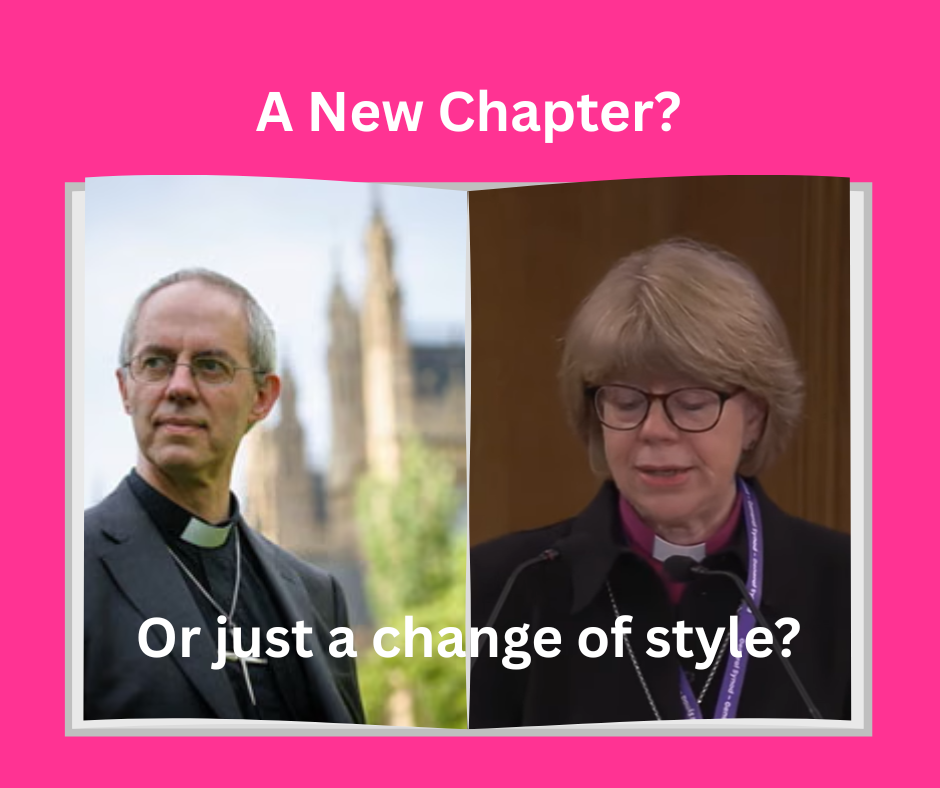Learning from Moses
- Anglican Futures

- Mar 15, 2022
- 3 min read
Updated: Aug 13, 2024

There are few if any experiences that better define Christian discipleship than accepting powerlessness.
Only newborns come into The Kingdom and only little children inhabit it.
Helplessness in the face of sin, foolishness in the face of the world. We plant and water, but God alone makes it grow, even as we sleep.
Total reliance on the unseeable Spirit of God, the invisible Father and the ascended Lord is the way of discipleship.
Surely all we have lived through in recent years should have led us to understand that in his kindness our Father desires us to be humbled and accept our weakness, our powerlessness.
The victim-toll of the Smyth, Fletcher and many other scandals, the pandemic that in the UK alone has claimed 10,000’s, many without hope, now war - humanity at its basest - where even the heroic long only to not have to be so.
Have we, who aspire to be faithful Anglicans now, at last, learnt to be powerless? To “do” powerlessness? Sadly, perhaps not.
Leaders, organisations and churches have responded to scandals not with deep lament for the victims and open confession of their own culpability but with speaking out, even lashing out. The contrast with our Lord as he laid down his life could not be starker.
When the Church of England was put in the scales its national leadership was found woefully wanting and as it faces the future it does so by the conceit of valuing least its most precious assets.
In the face of the evil which is Putin and his pseudo-government the best armed nations of the world are paralysed by the potential for escalation and smaller countries simply overwhelmed by that which has already happened.
All the power in the world and in the church has proved not even remotely up to the challenges.
It shouldn’t need to be said but just in case it does - the answer to the challenges facing Anglicanism is not Strategic Development Funding, renewed episcopacy, Resource Churches, a unity candidate, the Church of England Evangelical Council, Anglican Futures, a new organisation or model, a review, blog, podcast, publication, course, historic building, budget, civic role, impeccable theology or anything else, however desirable they all may be. The answer will be in our brokenness, humility, poverty (of all kinds), meekness, servanthood, reliance, disorganisation, unsophistication, messiness… In fact, just in making Paul’s joy complete (Phil 2).
As we look to the Anglican future is there any possibility other than that those who will shape it will be the beaten down, sacrificial, unattractive, prideless, marginalised, meek, unimportant, kind, gentle, tearful, loving, inarticulate, caring…? Has it ever been any other way? In the early church? In the Reformation? In the faithful global church today?
Alongside substituting orthodoxy for holiness, the conviction that even if not many were wise, powerful or noble the best thing would be if our leaders indeed were, has been revealed for the rank distortion that it always was. We sometimes marvel at the ridiculous stances of past generations of Christians, few, however, can have been as ridiculous as our own when it comes to who we follow.
Fellow Anglicans, seek not a masterplan nor a master-planner, but seek and pray for a Moses.
Now the man Moses was very humble, above all the men who were
on the surface of the earth.
(Numbers 12:3).
Image by Jill Suave - Unsplash




Comments